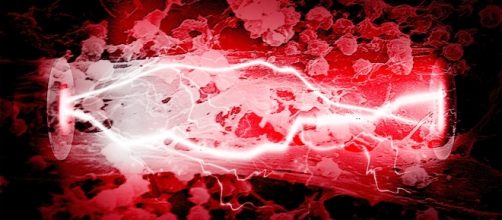Imagine your cellphone, laptop or HDTV being powered by fuel cells, not powered by alkaline or solar power cells, but instead by “self-sustaining Bacteria.” That’s exactly what researchers at Binghamton University in New York are working to perfect. While this creating energy out of seemingly thin air isn’t a new concept, Computer Science Assistant Professor Seokhren Choi says energy generated by bacteria is “still in its nascent stages.”
The prototype battery is smaller than one-fifth of a teaspoon and runs on a mixed culture of phototrophic bacteria and heterotrophic bacteria.
In case you don’t know the difference between the two: phototrophic bacteria uses sunlight, water and carbon dioxide to generate energy, while heterotrophic bacteria feeds on the organic material created by the first. It is the same process used by cows as they chew their cud.
Mixture of two creates perfect symbiotic cycle
In their experiment, after the two bacteria were mixed they generated an electric current for 13 consecutive days. Researchers were able to generate 70 times more electrical current than generated by phototrophic bacteria alone. Although the generating of energy in this innovative way is promising, researchers point out that they still have a long way to go. For example, it would take about 62,500 of these new bacteria cells to produce about one-half an amp of electricity, the amount it takes to run a 42” HDTV.
Self-sustaining at what cost?
However, if this new energy source is eventually perfected, it would offer a solution to providing power in remote or dangerous locations. That’s because these types of Fuel Cells would be self-sustaining and require minimal maintenance. This makes them a perfect fit to power health monitors and diagnostic sensors used in, for example, nuclear energy plants.
Currently, no one has put a price tag on this new energy cell because it is too early. It remains to be seen if this self-sustaining energy is cost effective. “The evolution of this technology will require additional exploration,” Choi said.

